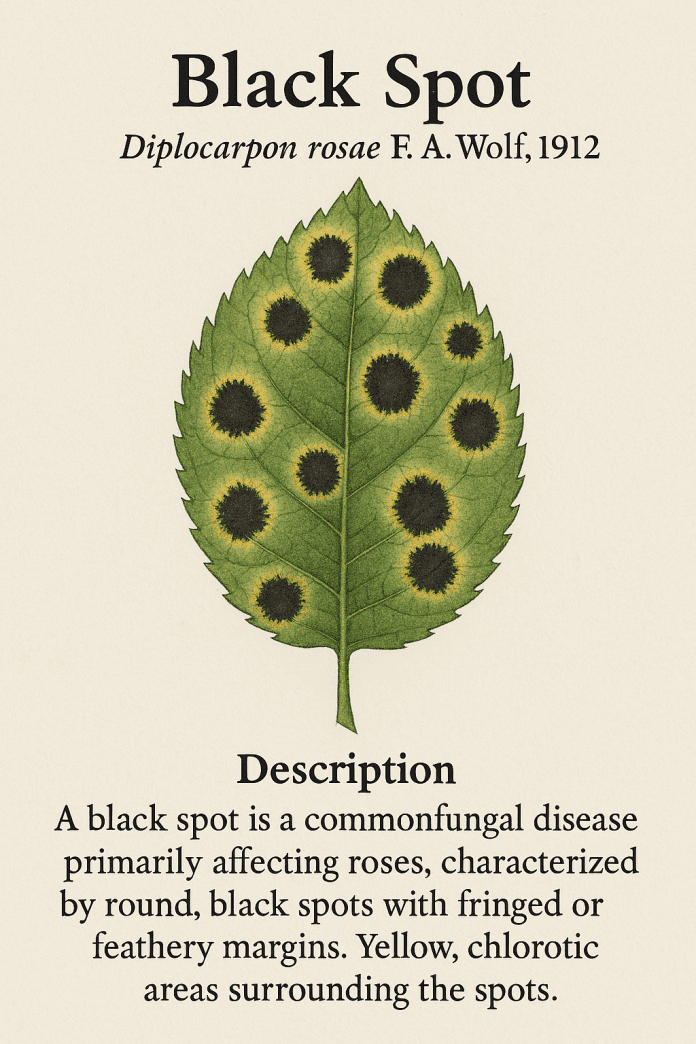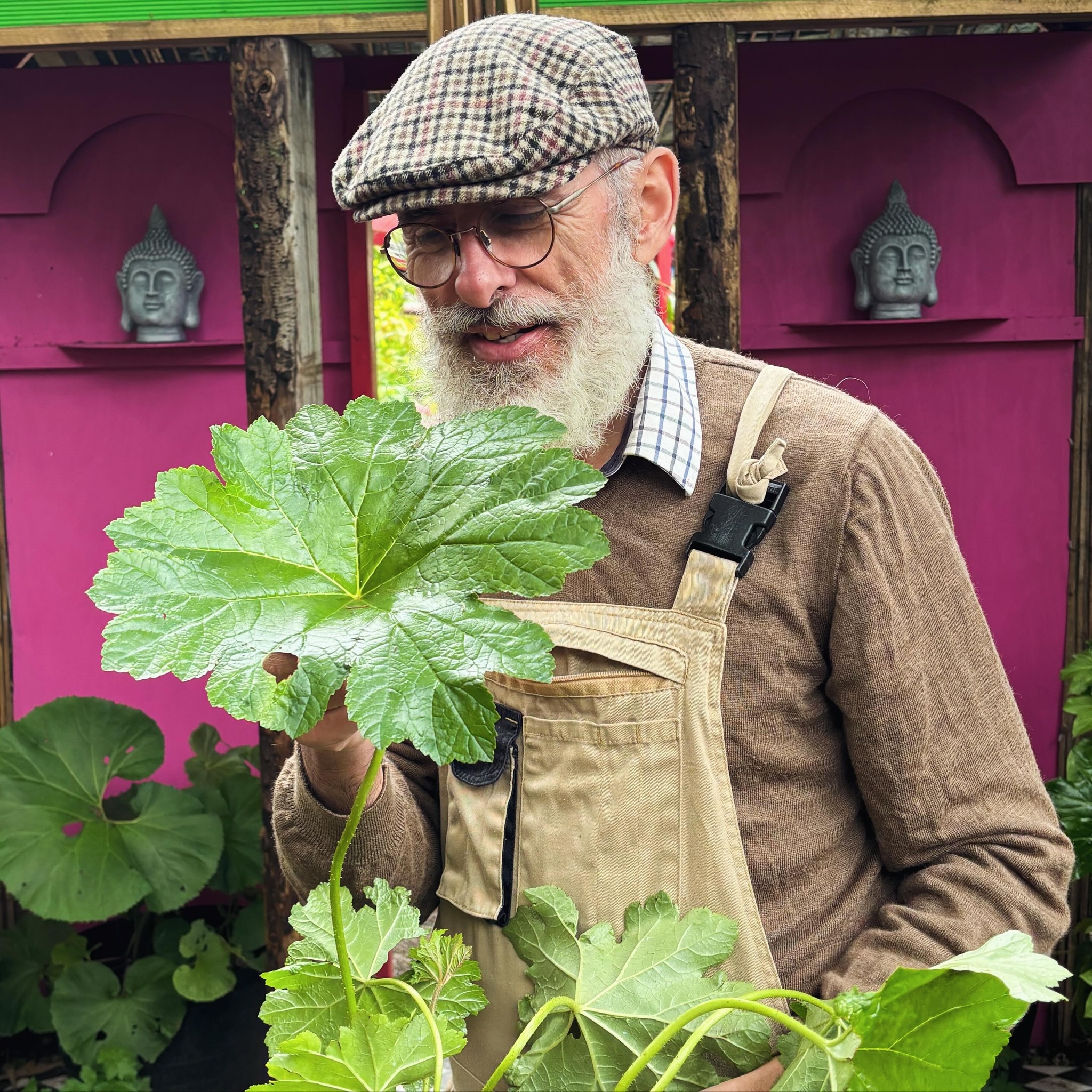Black Spot (Plant Disease: Caused by Diplocarpon rosae)
Classification:
- Kingdom: Fungi
- Phylum: Ascomycota
- Class: Leotiomycetes
- Order: Helotiales
- Family: Dermateaceae
- Genus: Diplocarpon
- Species: Diplocarpon rosae
Description:
Black spot is a fungal disease that primarily affects roses (Rosa spp.), though it can also impact other ornamental plants. It is one of the most common and destructive foliar diseases of roses, leading to defoliation, weakened plants, and reduced flowering. The disease thrives in warm, humid conditions, spreading rapidly in wet weather.
Symptoms:
- Circular black spots with fringed or irregular edges on leaves.
- Yellowing of leaves surrounding the spots.
- Premature leaf drop, leading to defoliation.
- In severe cases, weakening of the plant, reducing flowering and overall vigour.
- Dark purple or black streaks may appear on young stems.
Life Cycle and Transmission:
Diplocarpon rosae overwinters in fallen leaves and infected stems. The fungus produces spores that spread via water splash from rain or irrigation. Infection occurs when spores land on wet leaf surfaces, with symptoms appearing within 5 to 14 days. Continuous wet conditions promote repeated cycles of infection throughout the growing season.
Control and Management:
- Sanitation: Regularly remove and dispose of fallen leaves and pruned infected stems.
- Resistant Varieties: Plant disease-resistant rose cultivars.
- Air Circulation: Space plants properly and prune for good airflow to reduce humidity.
- Watering Practices: Water at the base of plants to keep foliage dry.
- Fungicides: Apply fungicidal sprays as a preventive measure or at the first sign of infection.
- Mulching: Use mulch around the base of plants to prevent spores from splashing onto leaves.
Conclusion:
Black spot is a persistent and damaging disease for roses, but with proper cultural practices and preventive treatments, it can be managed effectively. Integrated disease management, including sanitation, resistant varieties, and environmental control, is key to maintaining healthy plants.




